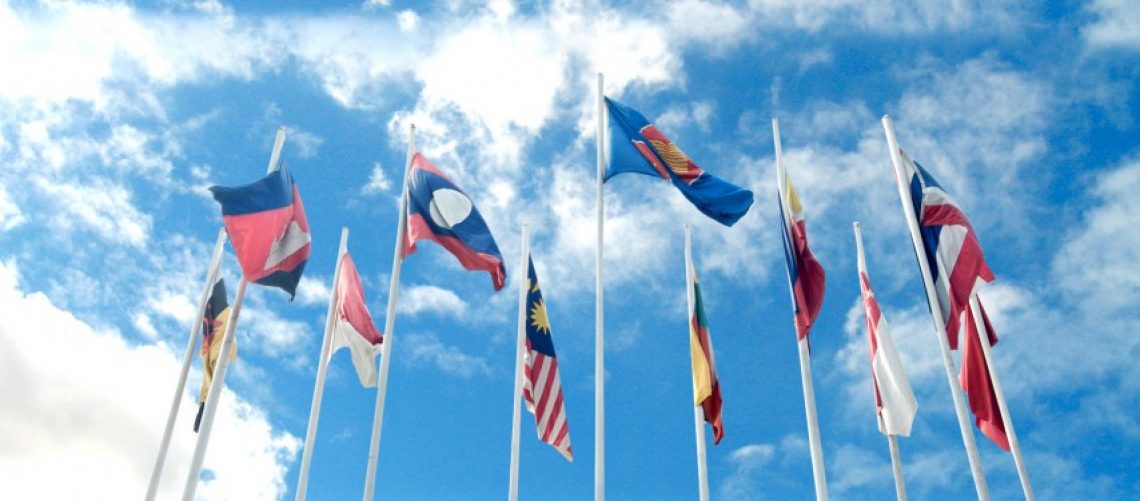I am glad to be here in Manila for a new session of the ASEAN-EU post- ministerial meetings: these meetings always present a precious opportunity to warm up our EU-ASEAN Dialogue and to measure its considerable importance. Let me also extend to you Co-Chairman the Commission’s appreciation of Thailand coordinatorship and, in particular, of your own special dedication. It is a great relief for Europe to know that our partnership is in good hands.
The past year has been a troubled and difficult period for ASEAN. The crisis that struck your region last summer has reached a magnitude we certainly would not have expected at the time. It has cut short a long period of high and constant growth for your countries. It has also taken on a world-wide dimension and Europe is not spared of its consequences. We have had many occasions to express our solidarity but I would like once again to stress the Commission’s eagerness to support the efforts ASEAN is making to overcome the consequences of the crisis.
Under the strong impetus of ASEM and also through the longstanding and special relation between the Union and ASEAN the ties between our two regions have considerably strengthened during the past years. This “acquis” shall not be undermined by the ongoing problems. It will be our responsibility to ensure that our business will go on working together, our administrations will continue their co-operation, our young people will increasingly meet and exchange ideas.
This crisis does, however present the opportunity for each of us, to review our past policy and to assess their possible weaknesses. In the case of Europe it has been a reminder of the changing nature of the markets and of the need to ensure swifter response to these changes. In the case of ASEAN, it showed the need for structural reform and sound monetary and financial policies. The answer to tile crisis demonstrated the remarkable vitality of your societies and a great capacity to decide on major shifts.
The Commission is in the process of assessing how the EC call best assist those countries where the social consequences of the crisis are the worst felt. The extent of the problems impose a need to define priorities with the Governments of these countries and co-ordination with other donors and with other international or organisations to ensure the most effective complementarily.
I would like to stress the particular assistance the EU could provide on how to tackle the problem from a regional point of view. This crisis is a challenge for ASEAN as needs to be addressed through Regional Co-operation. However we know from experience that when things go wrong, partners tend to withdraw to defend their national interest rather than strengthening their sense of regional identity and confronting the problem from a position of regional unity. In the case of Europe, the pro-region feeling won some years ago, and the decision to implement the Single Market proved the best solution against economic depression. We now are confident that the creation of the economic and financial market will bring a new positive contribution to our economies. To stimulate the economy a real decisive stop towards free trade and more cohesion can prove a considerable asset.
This year has regrettably seen an impasse between Europe and ASEAN on the holding of the JCC. Over the last twenty years of our relationship have disagreed on questions of substance and of principle, but it is the first time we have had to postpone a meeting. This meeting was to be a key meeting in the progress towards a broadens and strengthening implementation of the agreement. In particular in the context of the crisis we could do a lot to foster our commercial and investment co-operation with a view to contributing to the recovery of the ASEAN economies. It is the Commission’s strong wish that we can find a rapid solution to the present deadlock.
- ABOUT ASEANThe Association of Southeast Asian Nations, or ASEAN, was established on 8 August 1967 in Bangkok, Thailand, with the signing of the ASEAN Declaration (Bangkok Declaration) by the Founding Fathers of ASEAN: Indonesia, Malaysia, Philippines, Singapore and Thailand. Brunei Darussalam joined ASEAN on 7 January 1984, followed by Viet Nam on 28 July 1995, Lao PDR and Myanmar on 23 July 1997, and Cambodia on 30 April 1999, making up what is today the ten Member States of ASEAN.Menu
- WHAT WE DO
ASEAN organs always strive to achieve ASEAN’s goals and objectives, the Secretary-General of ASEAN and the ASEAN Secretariat shall be functioned as coordinating Secretariat to help facilitate effective decision-making withing and amongst ASEAN bodies. In addition, each Member State shall appoint a Permanent Representative to liaise with Secretary-General of ASEAN and the ASEAN Secretariat
Menu - WHO WE WORK WITH
ASEAN shall develop friendly relations and mutually beneficial dialogues, cooperation and partnerships with countries and sub-regional, regional and international organisations and institutions. This includes external partners, ASEAN entities, human rights bodies, non-ASEAN Member States Ambassadors to ASEAN, ASEAN committees in third countries and international organisations, as well as international / regional organisations.
Menu - OUR COMMUNITIES
The rodmap for an ASEAN Community (2009-2015) was declared by the leaders in 2009. The ASEAN Community, anchored on three community pillars: Political-Security Community, Economic Community, Socio-Cultural Community was launched in 2015. The ASEAN 2025: Forging Ahead Together was introduced in 2015 as a Post-2015 Vision. It comprises the ASEAN Community Vision 2025, the ASEAN Political-Security Community Blueprint 2025, the ASEAN Economic Community Blueprint 2025 and the ASEAN Socio-Cultural Community Blueprint 2025
Menu - SITEMAP





